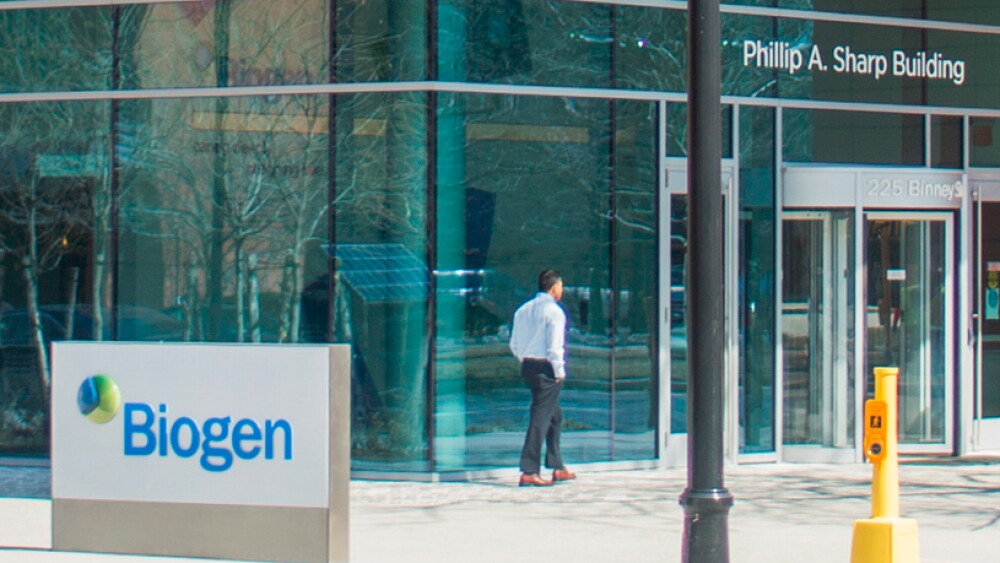September 20, 2016
By Mark Terry, BioSpace.com Breaking News Staff
The world would benefit from a really effective drug for Alzheimer’s disease. And any drug company that develops one has the potential of owning a drug that might hit $20 billion in sales. That said, Alzheimer’s drug development is a wasteland of failed trials, with the failure number around 125 and counting.
George Budwell, writing for The Motley Fool, takes a look at Biogen ’s aducanumab, which at the moment is the leading prospective for an effective Alzheimer’s drug.
In an August 31 article in Nature indicates that a small clinical trial of the drug broke up amyloid-beta proteins in Alzheimer’s patients. The patients were in an early stage of the disease, and the trial was focused on evaluating the drug’s safety. Two larger Phase III trials are now ongoing, and topline data won’t be available until at least 2020. Those trials will look at the drug’s effect on cognition and memory.
This earlier trial had 165 people, who were broken into two groups, some given the drug, some given the placebo. In the group that received aducanumab, 103 patients showed a reduction in the amount of amyloid-beta in the brains.
“This drug had a more profound effect in reversing amyloid-plaque burden than we have seen to date,” said Eric Reiman, executive director of the Banner Alzheimer’s Institute in Phoenix, Arizona, to Nature. “This is a very striking and encouraging finding and a major advance.”
But here’s the problem, which Budwell discusses. It’s not 100 percent clear that the build-up of amyloid-beta is the cause of memory loss and other Alzheimer’s symptoms. Other drugs being studied target beta-secretase 1, which is involved in processing amyloid proteins, that target a different type of amyloid (pyroglutamate form), and others target tau proteins that also seem to be part of the disease.
So it’s one thing to say that a drug seems to cut amyloid-beta in the brain and another entirely to say that it cures or even reduces the problems caused by Alzheimer’s disease. Budwell points out that Eli Lilly has a drug, solanezumab, which is very similar to aducanumab, which “failed to show an improvement in cognitive ability in patients with mild to moderate Alzheimer’s disease across two large late-stage studies. Making matters worse, several other anti-amyloid therapies have also failed to improve cognitive ability and/or daily function in AD patients, casting doubt on the amyloid plaque hypothesis.”
Researchers are starting to believe—in as much as there’s a consensus—that the mechanisms behind Alzheimer’s are complex and that there may be no “one-size-fits-all” medication. Anti-amyloid therapies, if they’re not harmful, may just end up being part of a combination therapy.
One problem anti-amyloid drugs have had in the past is brain inflammation, which in some cases has even caused deaths. In the early aducanumab trial, some of the patients receiving the drug reported imaging abnormalities of their brains, although they disappeared eventually and didn’t result in hospitalizations.
Still, the Nature article, written by Erika Check Hayden, notes that, “Aducanumab is a bright spot in the field of Alzheimer’s therapeutics after years of failed antibody and other types of drug trials.”
Reiman agreed, saying, “The fact that we now have an antibody that gets into the brain sufficiently enough to engage its target and remove plaques is an important development, and we look forward to seeing results from this and other Phase III trials.”
Budwell’s isn’t quite so optimistic. “If history is any guide, aducanumab probably won’t fare any better than solanezumab did in its first late-stage trials, meaning that this moonshot effort shouldn’t be the primary reason for investing in Biogen—despite its awe-inspiring commercial potential.”





